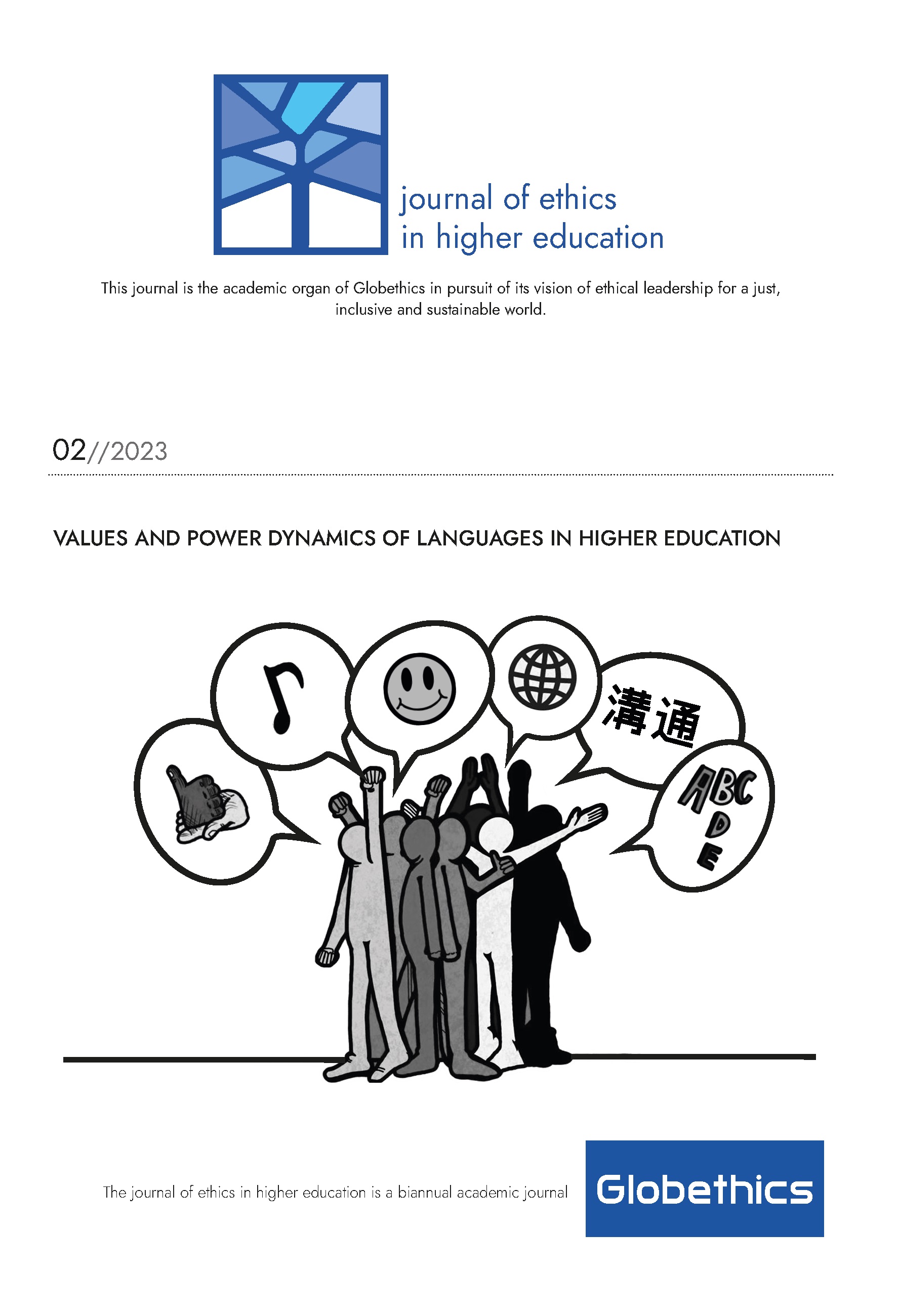Journal of Ethics in Higher Education (JEHE) - Issue 2(2023)
Journal of Ethics in Higher Education
A new space on the Globethics platform for the publication of research on ethics in higher education in a scientific journal.
- Title:
- Values and Power Dynamics of Languages in Higher Education
- ISSN:
- 2813-4370 (Print)
2813-4389 (Online) - Issue:
- 2(2023)
- Copyright & license:
- By the authors; CC BY-NC-SA 4.0
- Online copy:
- Access
- Print copies:
- Available from publications@globethics.net at a price of 15CHF (+ shipping)
- Abstract:
This second issue is focusing on different ways in which language or what we could call the semantic level of the reality is relevant for thinking, and in particular for knowledge acquisition at the university or in education institutions. 1) Language could be understood as an obstacle if a person needs to learn a new language to go to school, but cannot have a generous access to his/her own culture: this is the case in the so-called the 'bilateral lingual' experiences, during the colonial eras, for many people living in Africa, but also in many countries where borders have been shifting over the 20th century. 2) As 'interpersonal phenomenon', or 3) as musical universal medium for peace and compassion, one language could represent 4) a space open for 'hospitality', as when speaking our mother tongue, we take the language of the speaker's dominant and home language. Of course, instrumentalisation remains not only a welcoming mastering of grammar, as language is necessary for the transmission or exchange of information, it plays a role in the control of the behaviour of others. 5) The Word of God, in particular through the written form of the language and the interpretation of sacred texts of great religious traditions shows how from an humble speech we may discover not only sincerity, authenticity and the power of communication but also the majesty of words, which symbolically inspire us and transmit faith. 6) The deep challenges of translation of concepts are related to the double side of each exercise of translation: the first is a purely linguistic phenomenon, captured by the obvious differences in the languages themselves, the second is more complex, it has to do with the difference between cultures. 7) The development of emerging technologies have made not only a 'society of communication' almost a kind of tautology, it is generating unexpected ethical problems, as when artificial intelligence becomes difficult to detect in learning assignments.

